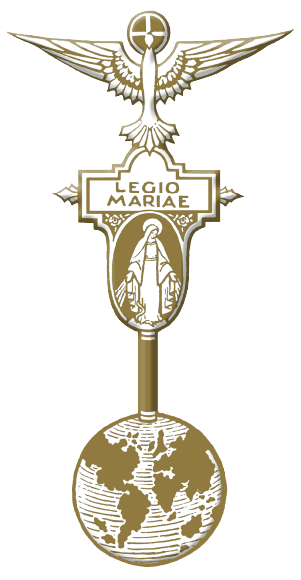All are Capable of Apostleship
Last month I spoke about the conviction of the Legion of Mary that every human person without exception is called to be a saint. We need to proclaim that truth always and everywhere, to those who are willing to listen and especially those who are not willing to listen. The Legion wants all its members to be saints and to help as many others as possible to be saints too. The Legion strives for nothing less than this objective. This is what the II Vatican Council called the universal call to holiness. The Legion seeks to be a school of holiness. It sees this objective as God’s passionate will for us. As the Handbook puts it: “The success of the enterprise in hand is more by far to God than it is to us. Infinitely more than we, does he desire that conversion that we are seeking. We wish to be saints. He yearns for it a million times more than we.” (p18) But inseparable from that primary conviction about our call to be saints is the equally strong conviction that we are called, every Christian without exception, to be apostolic. We are called to take our part through Jesus and with Mary in the redemption of the world. We are called to be instruments of salvation each according to his or her capacity and particular way of life. To the extent that we are not trying to help others to save their souls we are failing to be Legionaries, indeed, we are failing to be Christians. Intrinsic to holiness is the call to be apostolic. It is hard to think of a greater privilege than to be an instrument of Jesus and Mary in bringing another person to heaven.
Chapter 40 of the Legion Handbook, ‘Go preach the Gospel to the whole Creation.’ (Mark 16:15), is a wonderful statement of the vocation of the Legion to the universal apostolate. It merits frequent reading, reflection, and above all putting into practice. Scripture scholars tell us that the whole New Testament was written in the light of the Risen Christ. In the light of the Resurrection every phase in the life of Christ took on a new and a great importance. The life of Christ was seen as the life of God Himself and therefore everything about Him took on infinite significance. But more specifically the New Testament was written in the light of the last words of the Risen Christ: “Go into all the world and proclaim the Good News to all creation” (Mark 16:15) In other words the whole New Testament is written in function of the work of evangelisation. As the II Vatican Council put it: “The Church is missionary by its very nature.” I think the whole Handbook too is written in function of evangelization. The Legion is totally at the service of the salvation of souls. Or to put it another way: the Legion is essentially missionary or apostolic just like the Church itself. When the Legion ceases to evangelize it loses its right to exist.
Frank Duff, our founder, was above all a lay apostle. Every chapter of the Handbook is suffused with an apostolic spirit. He is at his most eloquent when he is speaking of the salvation of souls.
It is worth quoting some texts which epitomise what is found throughout the Handbook: “Make no mistake about it. The faith must be brought to the notice of every person outside the Church. Timidity and human respect and difficulties of one kind or another must all be swallowed up in the supreme desire to share that gift of faith with those who have it not. The Gospel must be brought to every creature. The exertions to that end must be like those of people beside themselves, thought St. Francis Xavier. But others will counsel prudence. Yes, much depends on it in its true sphere, which is that of safeguarding necessary action, not crippling it. The rightful place of prudence in a system is that of a brake, whereas the error is almost invariably made of supposing that it is the engine.” He then quotes Cardinal Suenens: “By dint of repeating that people are not ready to receive the Gospel, one would end up by not being ready to bring it to them.”
Dear Legionaries, in a later Allocutio we will talk about Mary and the Apostolate. We will also talk about the Mystical Body of Christ and the Apostolate and all the other great themes of the Handbook on the primary task of the Legion to evangelize. But today I simply want to put a question before every Legionary and indeed before every praesidium, Curia and even Concilium itself: Can you honestly say that the salvation of souls in union with Mary is your primary preoccupation and if so what is the evidence of that in your life of prayer and apostolic action? We must always be going back to the basics if the Legion is to really be at the service of Mary and her Son. Frank Duff said that Mary could rightly say of herself: “I am Apostleship.” The spirit of the Legion is the spirit of Mary and therefore it too must be able to say in a sense totally dependent on Mary: We are Apostleship.

